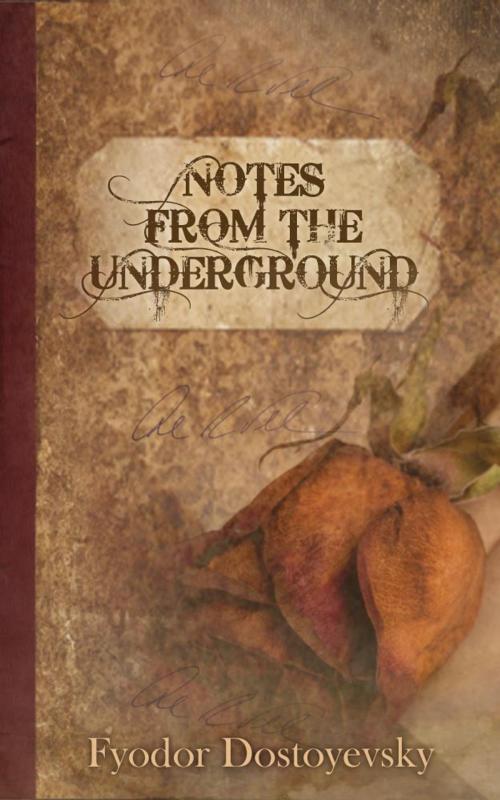Notes from Underground
[Free Audio Links]
Fiction & Literature, Literary Theory & Criticism, European, Russian, Classics, Literary| Author: | Fyodor Dostoevsky | ISBN: | 1230000202161 |
| Publisher: | Starbooks Classics Publishing | Publication: | December 12, 2013 |
| Imprint: | Language: | English |
| Author: | Fyodor Dostoevsky |
| ISBN: | 1230000202161 |
| Publisher: | Starbooks Classics Publishing |
| Publication: | December 12, 2013 |
| Imprint: | |
| Language: | English |
Notes from Underground , also translated as Notes from the Underground or Letters from the Underworld, is an 1864 novella by Fyodor Dostoyevsky. Notes is considered by many to be the first existentialist novel. It presents itself as an excerpt from the rambling memoirs of a bitter, isolated, unnamed narrator (generally referred to by critics as the Underground Man) who is a retired civil servant living in St. Petersburg. The first part of the story is told in monologue form, or the underground man's diary, and attacks emerging Western philosophy, especially Nikolay Chernyshevsky's What Is to Be Done?. The second part of the book is called "Àpropos of the Wet Snow", and describes certain events that, it seems, are destroying and sometimes renewing the underground man, who acts as a first person, unreliable narrator.
[Literary significance and criticism]
Like many of Dostoyevsky's novels, Notes from Underground was unpopular with Soviet literary critics[not in citation given] due to its explicit rejection of utopian socialism and its portrait of humans as irrational, uncontrollable, and uncooperative animals. His claim that human needs can never be satisfied, even through technological progress, also goes against Marxist beliefs. Many existentialist critics, notably Jean-Paul Sartre, considered the novel to be a forerunner of existentialist thought and an inspiration to their own philosophies.
The philosopher Friedrich Nietzsche called Dostoevsky "the only psychologist, incidentally, from whom I had anything to learn", and that Notes from Underground "cried truth from the blood".
Ralph Ellison's 1952 novel Invisible Man, which has themes of existential anguish in the black American experience, uses a protagonist-narrator inspired by Dostoyevsky's underground man.
Notes from Underground , also translated as Notes from the Underground or Letters from the Underworld, is an 1864 novella by Fyodor Dostoyevsky. Notes is considered by many to be the first existentialist novel. It presents itself as an excerpt from the rambling memoirs of a bitter, isolated, unnamed narrator (generally referred to by critics as the Underground Man) who is a retired civil servant living in St. Petersburg. The first part of the story is told in monologue form, or the underground man's diary, and attacks emerging Western philosophy, especially Nikolay Chernyshevsky's What Is to Be Done?. The second part of the book is called "Àpropos of the Wet Snow", and describes certain events that, it seems, are destroying and sometimes renewing the underground man, who acts as a first person, unreliable narrator.
[Literary significance and criticism]
Like many of Dostoyevsky's novels, Notes from Underground was unpopular with Soviet literary critics[not in citation given] due to its explicit rejection of utopian socialism and its portrait of humans as irrational, uncontrollable, and uncooperative animals. His claim that human needs can never be satisfied, even through technological progress, also goes against Marxist beliefs. Many existentialist critics, notably Jean-Paul Sartre, considered the novel to be a forerunner of existentialist thought and an inspiration to their own philosophies.
The philosopher Friedrich Nietzsche called Dostoevsky "the only psychologist, incidentally, from whom I had anything to learn", and that Notes from Underground "cried truth from the blood".
Ralph Ellison's 1952 novel Invisible Man, which has themes of existential anguish in the black American experience, uses a protagonist-narrator inspired by Dostoyevsky's underground man.















